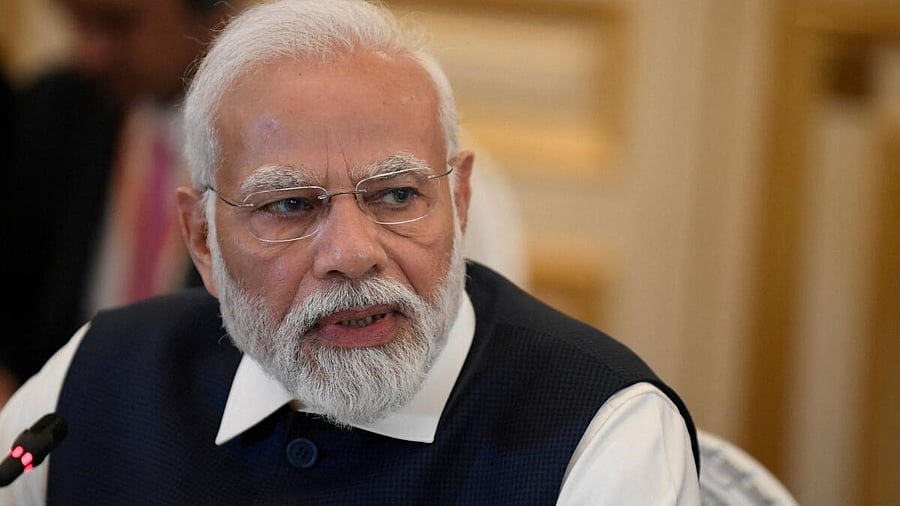
Prime Minister Narendra Modi during a meeting at a foreign location. (Representative image)
Credit: Reuters File Photo
A Washington Post report naming the RAW officer who allegedly oversaw a failed plot to kill Gurpatwant Singh Pannun, a Khalistani activist and US citizen, in New York, makes quite obvious what has been suspected all along: that US investigators are in possession of more details about the imputed conspiracy than was disclosed in a New York court late last year. The plot failed as some of the dramatis personae were working for federal law enforcement authorities. The middleman used by the RAW officer was arrested in Prague by Czech authorities at the behest of US officials. The chargesheet filed in the court had named the middleman but not the RAW officer, who was described as CC1. Going by the report, he appears too far down in the hierarchy to have masterminded the alleged plot on his own without a go-ahead from his seniors. Now, the only question is how far up the buck stops. RAW, India's foreign intelligence agency, answers to the Prime Minister via the National Security Adviser.
India has said the report makes “unwarranted and unsubstantiated imputations on a sensitive matter” and is “not helpful” to an “ongoing investigation” by a high-level committee. It is significant that the Ministry of External Affairs did not deny any of the details in the report. Clearly, someone in Washington is unhappy with the pace of the said investigation, and believes that Delhi is not doing enough to bring those at the centre of this alleged plot to book and punish them. Calling out the official by name through a prominent US news daily was a shot across the Indian bow, and it apparently came with a warning that this was imminent.
All this suggests that India's most vaunted foreign relationship is not exactly blissful. It indicates an absence of trust between the two security establishments, which can cloud the bigger objectives of the bilateral ties. If the allegations are true, it also points to misplaced confidence in Delhi that it can bypass the rule of law in another country. Most importantly, eliminating or attempting to eliminate fugitives from Indian law on friendly foreign soil undermines Delhi's international standing. It puts India in the same unsavoury global category of countries who bump off political dissidents abroad. India and the US have worked hard over the past two decades to build their “strategic partnership” with a mutually beneficial global agenda, one that is especially key to India’s national security as well as economic dynamism. Delhi will do well to begin work immediately to smooth over this bump in the relations with the US.
